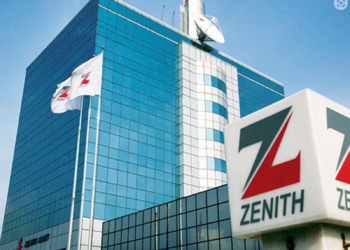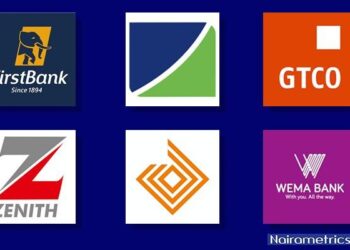How does a Financial Services Group make N19b a month, post a Profit After Tax figure of N230b in an environment where global commerce virtually ground to a halt in 2020?
The Zenith Bank Plc (Zenith) Year-end 2020 final results are a blockbuster, not just in the quantitative, but the qualitative as well. In all major headline numbers, Zenith posted growth on a Year-on-Year basis, specifically, Gross Earnings are up 5.2%, Net Interest Income up 12%, Customer deposits up 15.3%.
Somehow Zenith grew her loan book by 18% in a recession and reduced the volume of Non-Performing Loans in the same period. Zenith was also able to post a higher revenue number from non-interest income even as yields on fixed-income fell across Nigeria. I must stress, Zenith has posted these results by servicing her target segment of the high-end corporates in Nigeria.
READ: Union Bank Nigeria Plc posts N15.9 billion profit in 9M 2020, up by 2%
So how did Zenith achieve this? I want to do a deep dive into how to make profits in a recession. However, it is important to start with a background on how banks make money which is basically in two ways;
- Interest income: which is income generated from the bank gathering deposits from customers and investors and “renting” out these funds to individuals and corporates for a fee called interest. Interest Income is seen as the main business of banks. It is a measure of how well the bank has fine-tuned its people, process, and systems to generate returns from a commodity called cash.
- Non-Interest Income: This is the income the bank generates from deploying its brands and people to juice revenues from activities that do not necessitate a transfer of cash. For Example, a bank asset management business leverages the bank’s skillsets to earn fees by providing investment advice to clients. Does a business want to expand? The bank can advise on the process to make that happen.
READ: Zenith Bank spends N20 billion on IT in 2020, up 122%
The strategy for banks globally is to attract deposits at a lower rate than it lends out to borrowers. This allows the bank generate a spread between cost and revenue. The bank’s interest spread can be magnified by the number of quality loans it creates as Interest Income rests also on the quality of the loan book. Positive spread drives the funding of other banking services and is supported by the banks internal competencies to manage risk
So a bank makes profits by
- Attracting cheap deposits
- Earning positive spread
- Providing value addition for a fee
- Effective Risk Management
All these have to happen simultaneously. A bank that sources expensive deposits by paying higher rates generates a lower spread. Lower spread exposes the bank to cost overruns and will prove fatal to long-term growth.
READ: Zenith USSD banking transaction value rises by 30.8% Y-o-Y to hit N497.29 billion
With this in mind, let’s review Zenith FY 2020 Performance
- Attracting Cheap Deposits: In 2019, Zenith’s total interest expense, which represents how much it paid to get deposits was N148b, that figure dropped in 2020 to N121b. this means the bank was able to grow deposits by 25% but at a lower cost. How? Zenith changed her deposit mix, reducing borrowed funds/leases and time deposits by 41% and 38% respectfully and increasing the share of current accounts by 155%. By swapping the deposit mix, the bank’s cost of funds ratio fell by 18mn%.
- Earning Higher Spread: Zenith grew Net Interest Income by 12.2% in 2020. This figure represents income earned from the deposits and investments of the banking group. Again, this was achieved by asset mix reorganization. In the face of falling rates especially on shorter-dated FGN instruments, Zenith shifted allocation from Treasury bills to longer-dated FGN bonds which paid a higher yield. Zenith’s Non-interest Income also grew to N275b a 5% jump from 2019. This is driven largely by extraordinary items including foreign currency revaluation gain, which is the gain realized from the revaluation of foreign currency-denominated assets. I must highlight this. Zenith was able to post a gain of about N43b which is a 256% gain from FY 2019 based on the Naira being devalued to the US Dollar.
- Providing Value Addition: Value addition will include all non-core banking services Zenith Group provides to the public including subsidiaries like the Zenith Penson Custodians which has N4t in assets under custody. Commission on agency and collection was a big contributor to Zenith’s non-core banking revenue.
- Risk Management: Zenith was efficient in deploying its internal competencies to minimize and avoid risk and impairments from the ordinary and extraordinary course of business. Zenith like other financial institutions saw a pullback in commercial activities from her clients. Take the Commerce subsector, the Non-Performing Loan share in that sector grew from 9% to 24%. Zenith, booked an increase in the number of NPLs by volume to N125m in FY 2020 but the bank was able to keep the NPL ratio down to 4.29%. An extraordinary feat.
Overall, the bank was able to navigate a difficult year and post a good return and a handsome dividend of N3 to investors. Zenith was able to achieve all this while increasing the staff strength by 4.6% to 7555 employees.
However, there are red flags as well:
- Net Interest Margin was down in FY 2020 as yields declined. If yield continues to stay muted, can Zenith keep finding profitable avenues to invest that N5.34 deposit base?
- Interest income positive in FY 2020 at 420b but when compared to 2017, interest income is falling.
- If you ignore the revaluation gain, then Non-Interest income will be considerably muted, possibly negative in FY 2020
- Fees on electronic products fell 36% in an environment where online banking has been not just sound business practice, but life-saving as well.
Overall, in an environment with months of local and international shutdowns, Zenith has posted good numbers and demonstrated it is possible to eke out gains from a hard environment. When one looks at the dividend yield, P.E. Ratio of the bank, for me, this is a Buy.
























good job